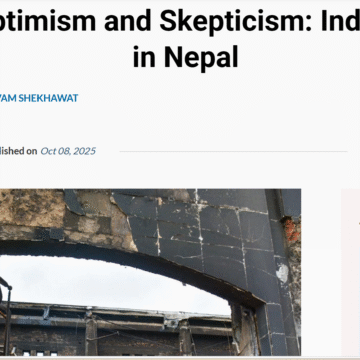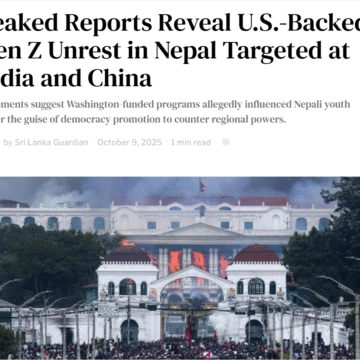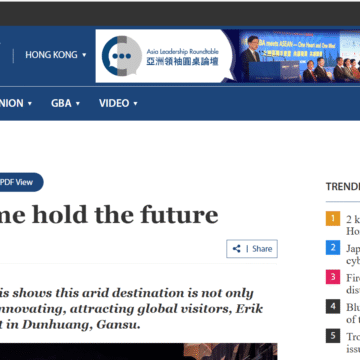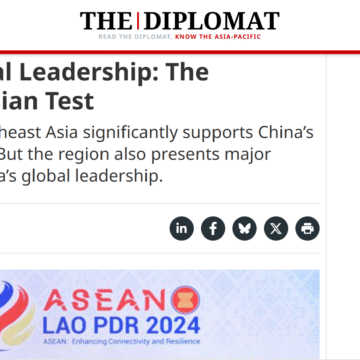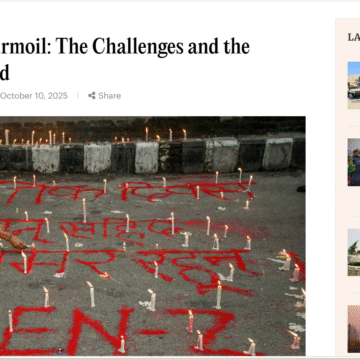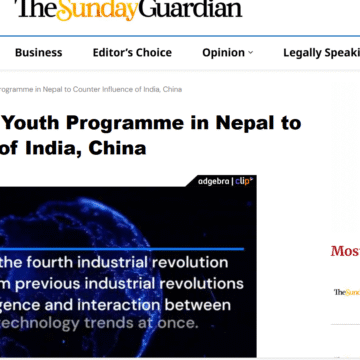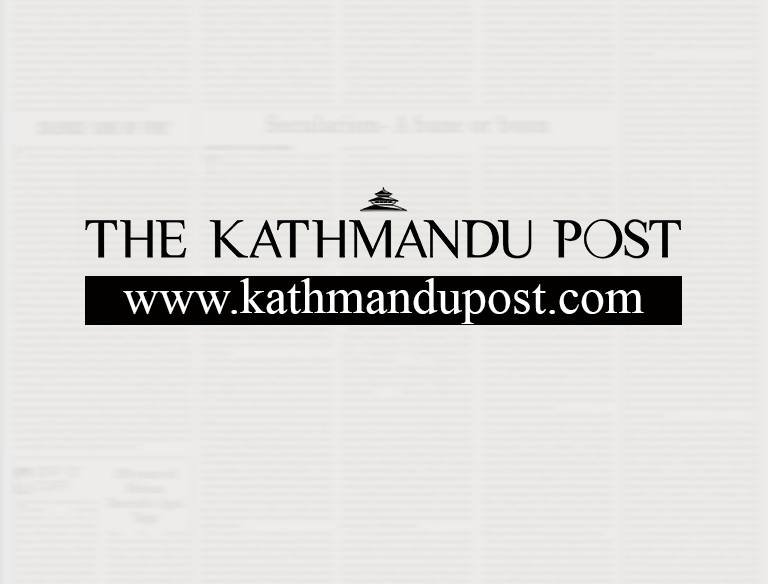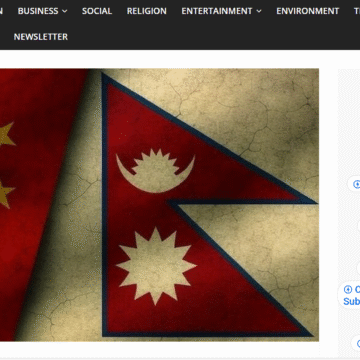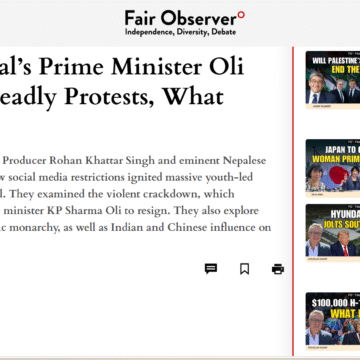In the aftermath of the ‘September revolution’, and the formation of a new interim government in Nepal under the leadership of former Chief Justice, Sushila Karki, there are concerns and apprehensions about the trajectory that Nepal will adopt in the coming months as well as about the interim government’s ability to successfully organise fresh elections...
Category: Geopolitics Analysis
The sands of time hold the future
Almost no one thinks of the fiddle when they think of the Silk Road. But American folk musician Kyle Dillingham does. In fact, it’s this legacy, spanning centuries and continents, that inspired him to travel all the way from Oklahoma in the United States to Dunhuang, Gansu province. Dillingham journeyed to the modern city that...
China’s Global Leadership: The Southeast Asian Test
Southeast Asia is vital for China. Well-known international relations scholar Yan Xuetong has stated that the region will develop economically, politically, and militarily in the future, surpassing other neighboring areas. But for the same reason, the United States aims to contain China by increasing its presence in the region. Thus, Southeast Asia is a key...
Nepal’s Political Turmoil: The Challenges and the Possible Path Ahead
Youth have been agents of change in nation-building across the world, and Nepal is no exception. On 04 September 2025, Nepal witnessed political turmoil largely led by GenZs who called for the overthrow of Prime Minister KP Sharma Oli and his government. The widely circulated cause for the GenZ protests was the law that was...
The U.S. Funded a Youth Programme in Nepal to Counter Influence of India, China
New Delhi: Newly obtained internal records reveal how Washington quietly funded and directed a youth mobilisation programme in Nepal—blending political training, protest strategy, and geopolitical messaging to counter India and China’s influence. Internal documents from the International Republican Institute (IRI), a U.S. organisation funded by the National Endowment for Democracy (NED), reveal the structure of...
Inside the ‘TOB’ controversy that has taken social media in Nepal by storm
Since Saturday, an acronym has thrown Nepal’s social media sphere into a tizzy: ‘TOB’. The acronym first came into public view after multiple photos and videos on social media showed it emblazoned on the back of the black T-shirts worn by a few young men who took part in last month’s Gen Z protests. Speculations...
he Chinese Creep Into Nepal: A Historical And Contemporary Narrative – Analysis
As the first rays of daylight filter over the hills surrounding Pashupatinagar — a Nepali border town in the Ilam District adjoining India’s West Bengal — the summer rain turns them a luminous green. The marketplace wakes in a manner that feels distinctly transformed. The soundscape of the bazaar, once dominated by the intermingling tones...
FO° Talks: Nepal’s Prime Minister Oli Resigns After Deadly Protests, What Next?
In this episode of FO° Talks, Video Producer Rohan Khattar Singh and eminent Nepalese journalist Kuber Chalise discuss how social media restrictions ignited massive youth-led protests against corruption in Nepal. They examined the violent crackdown, which heightened calls for the then-prime minister KP Sharma Oli to resign. They also explore debates over the return of...
Nepal protests: What triggered the massive deadly chaos in India’s neighbourhood?
Nepal protests: What triggered the massive deadly chaos in India’s neighbourhood? Read more at:https://economictimes.indiatimes.com/news/new-updates/nepal-protests-what-triggered-the-massive-chaos-in-indias-neighbourhood/articleshow/123762234.cms?utm_source=contentofinterest&utm_medium=text&utm_campaign=cppst

